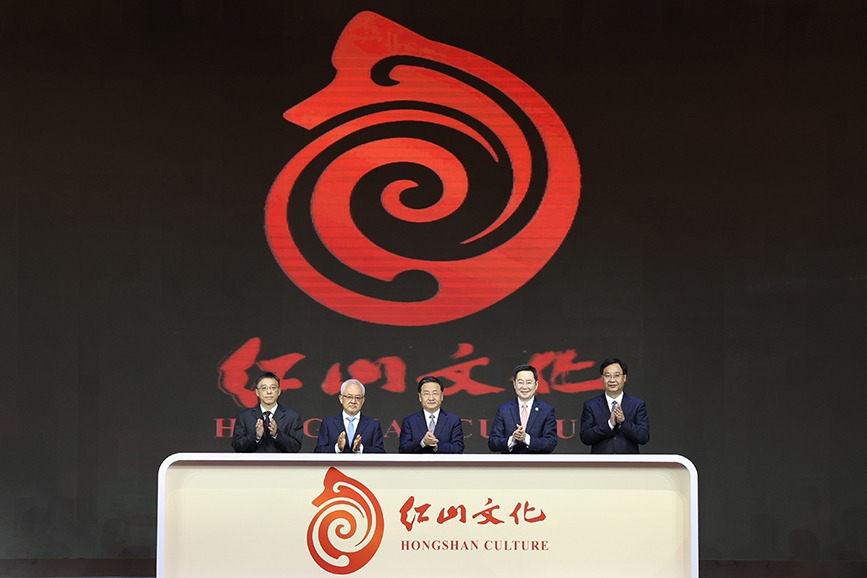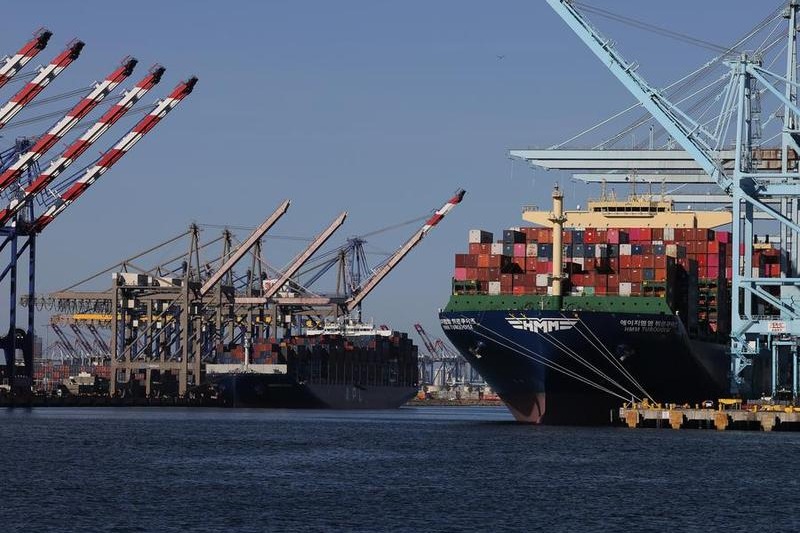Vitalized partnership


JIN DING/CHINA DAILY
China and Russia continue to strengthen their economic and trade cooperation
Led by the high-level interactions between China and Russia, the two countries have opened a new chapter of friendship, cooperation and common development, evidenced by their increasingly close bilateral economic and trade relations.
In 2022, bilateral trade hit a record high of $190.3 billion, approaching the trade target of reaching $200 billion by 2024 previously set by the two heads of state.
In February, bilateral imports and exports continued to deliver strong double-digit growth, providing an important stabilizing force for Chinese trade.
The bilateral trade between China and Russia is of high complementarity and of strategic importance. According to the index of revealed comparative advantage of imports and exports of the two countries, in 2020, China's exports of 43 goods and two services showed a strong complementary relationship with Russian imports. Most of these goods were from labor-intensive industries, including fur, ceramics, railway locomotives, toys, base metal products and textiles and clothing; while the service sectors were construction, tourism and other business services.
Notably, in the context of the Belt and Road Initiative, the complementarity of trade in construction and transportation between China and Russia has grown significantly. As for Russia, its exports of 15 goods and three services are strongly complementary with China's imports, including metal products, minerals, wood products and agricultural products.
Russia is one of China's most important suppliers of crude oil, timber, charcoal and wood products. In addition, bilateral trade and economic cooperation between China and Russia is also of great significance to the development of Northeast China and the Russian Far East, and the two countries are steadily advancing their cooperation in energy, aerospace, infrastructure, science and technology innovation and cross-border e-commerce.
In the continuum of the global value chain, China-Russia trade is strongly collaborative. China's exports include a certain amount of foreign value added. On the other hand, Russia is located in the relatively upper reaches of the value chain, and its value added is mostly included in the exports of downstream countries.
Compared with traditional trade indicators, China's reliance on Russia's value added has shown an increase not only in the importance of bilateral interaction, but also in the range of industries involved, especially mining and quarrying, timber and cork products, coke and refined petroleum products, wholesale and retail, and transportation and storage.
As the world is undergoing profound changes, bilateral trade and economic cooperation between China and Russia faces rising uncertainty, highlighted by the triple impact from the COVID-19 pandemic, geopolitical conflicts and global environmental policy adjustments.
The COVID-19 pandemic has accelerated the restructuring of the global industry chains, prompting a shift from prioritizing efficiency to balancing both efficiency and security. This poses challenges and opportunities for the economic development and trade cooperation of China and Russia.
With the US and Western countries tightening their economic sanctions against Russia and sending weapons and equipment to Ukraine, the situation is worsening. In addition, the US is using the Ukraine crisis to smear China and force other countries to take sides, exposing China and Russia, and even the world, to serious political interference in normal economic and trade activities.
The push for the green transformation of the global industry chains has presented China and Russia different sets of challenges. As the world's largest carbon dioxide emitter, China is pressed for time to achieve its pledge to peak its carbon emissions before 2030 and realize carbon neutrality before 2060.
Russia, on the other hand, is facing the pressure of declining long-term demand for traditional energy, and the urgent need to transform the structure of its energy industry.
In the context of carbon neutrality, there is potential for China and Russia to collaborate in energy supply and demand. For example, to meet the growing demand for natural gas, China can step up cooperation with Russia in natural gas exploration and production, transportation and distribution, as well as storage and reception.
Cui Xiaomin is an associate research fellow of the Institute of World Economics and Politics at the Chinese Academy of Social Sciences and the National Institute for Global Strategy at the CASS. Su Qingyi is a research fellow of the Institute of World Economics and Politics at the CASS and the National Institute for Global Strategy at the CASS. The authors contributed this article to China Watch, a think tank powered by China Daily. The views do not necessarily reflect those of China Daily.
Contact the editor at editor@chinawatch.cn.

































